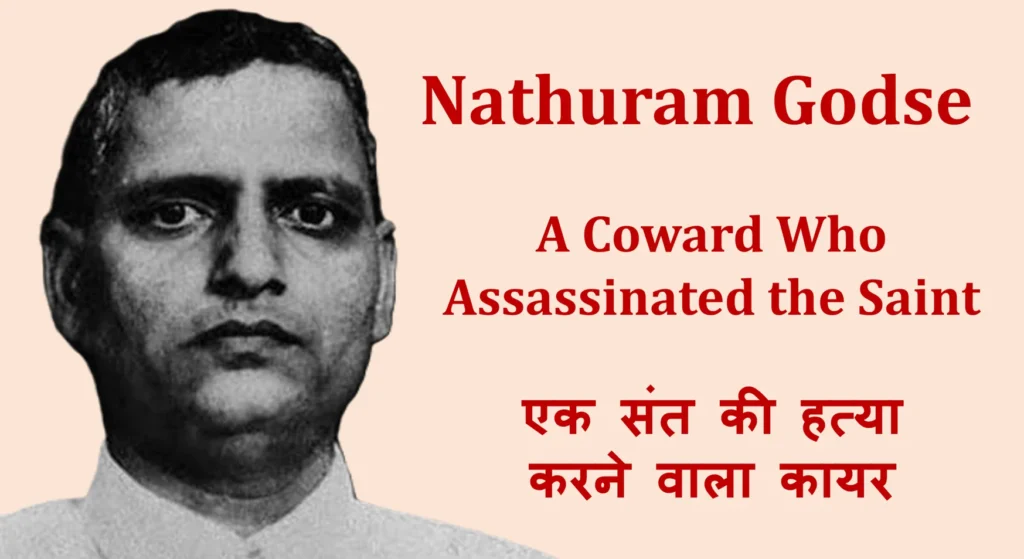
Introduction
The teachings of Mahatma Gandhi, India’s Father of the Nation, on nonviolent philosophy, peace, and independence have left a lasting impact. He led India to independence awakening its soul and uniting its people. Nonetheless, this great heritage was marred by Nathuram Godse’s decision to slay a saint.
The Legacy of Mahatma Gandhi
His Philosophy and Contributions to Indian Independence
India’s quest for freedom was ignited by the political and philosophical lessons given by Mahatma Gandhi. To shape social and political transformation, he backed use of nonviolence resistance and civil disobedience as effective means. Thus he urged Indians to avoid hatred and violence, which should be replaced with love, compassion and truth.
His Emphasis on Non-Violence and Peace
Gandhi’s emphasis on nonviolence as an instrument of change became central to his philosophy. He argued that violence breeds more hatred hence only nonviolence can lead one into true freedom. It is such approach that influenced millions not only in India but also across the world and though it continues serving as beacon light for all peaceful movements today worldwide.
The Effect of Gandhi on Indian Society
The effect of Mahatma Gandhi on Indian society was deep-seated. His preachings promoted mutual cohesion among the people from different religions, tribes and backgrounds. By means of his activities, for instance, Salt March and Quit India Movement, Gandhi drew millions of Indians into a nationalistic fervor that would lead to independence. As such he not only contributed to freeing India but also laid down the basis for democratic India as an all-inclusive nation.
“Violence is the foe of humanity; non-violence alone leads to peace and progress.”
– Mahatma Gandhi
Nathuram Godse: Early Life and Influences
Godse’s Childhood and Upbringing
Nathuram Godse who is known as a man behind the assassination crime against Mahatma Gandhi was born on 19th May 1910 in Baramati town situated in Maharashtra, India. Coming from middle class background, Godse’s upbringing fostered right wing sentiments within him as he grew up in a conservative environment where these ideas were popularly held by members of his family. It is therefore true to say that his family background coupled with social atmosphere played very significant role in determining his future life.
As a young boy brought up in this community, Godse had been exposed to strong influences of Hindu nationalism since childhood. He lived within a setting where fanaticism and religious zealotry were highly valued. This early upbringing consequently formed the foundation for extremist ideologies which he later embraced fully.
Godse’s Association with Right-Wing Organizations
As Godse matured, he became increasingly involved with right-wing organizations that shared his extremist views. His early political leanings veered towards radical nationalism, and he found solace in organizations like the Hindu Mahasabha. Under the guidance of leaders like Vinayak Damodar Savarkar, Godse’s ideological indoctrination intensified.
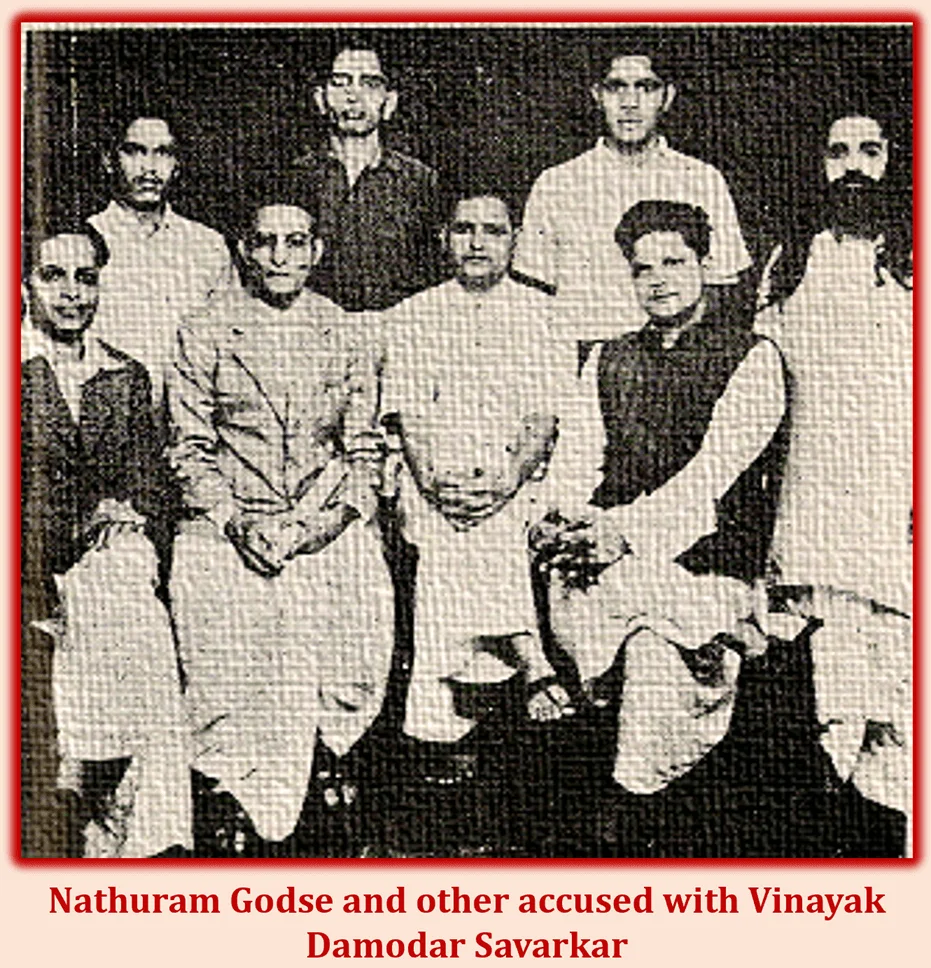
Hindu nationalism played a pivotal role in shaping Godse’s belief system. The narrative of promoting Hindu supremacy, coupled with a sense of victimhood, resonated deeply with him. This ideology became the driving force behind his actions and led him to collaborate with extremist groups and leaders who shared similar objectives.
Influence of Hindu Nationalism on Godse’s Ideology
Deeply influenced by Hindu nationalism, which inherently believes in the defense of Hindu pride and upholding one’s cultural heritage, Godse had a strong ideology. He was of the view that other religions posed great threat to this tradition and this motivated his entire narrative of saving Hindu values made entailed seeing Mahatma Gandhi as an impediment to the establishment of a Hindu nation.
Collaborations with Extremist Groups and Leaders
Godse joined some radical organizations such as the Rashtriya Swayamsevak Sangh (RSS) and the Hindu Mahasabha that helped him to achieve his selfish objectives. These groups provided Godse with a sense of identity and recognition he had been longing for when he said they were driven by enthusiastic nationalism. His extremist tendencies were nurtured by spirit shared among all these associations thereby making him take extreme measures.
Godse’s Role in the Assassination Conspiracy
On 30th January 1948 Nathuram Godse carried out a shameful act of assassinating Mahatma Gandhi. The murder however was not impromptu, but it was done after careful planning between Narayan Apte, Gopal Godse, Madanlal Pahwa and Vishnu Karkare who were also took part in it. They planned it so well that their sole aim was to kill Gandhi to prevent peace and unity from taking hold. This act shocked India and echoed repeatedly across continents leaving an indelible mark on him forever.
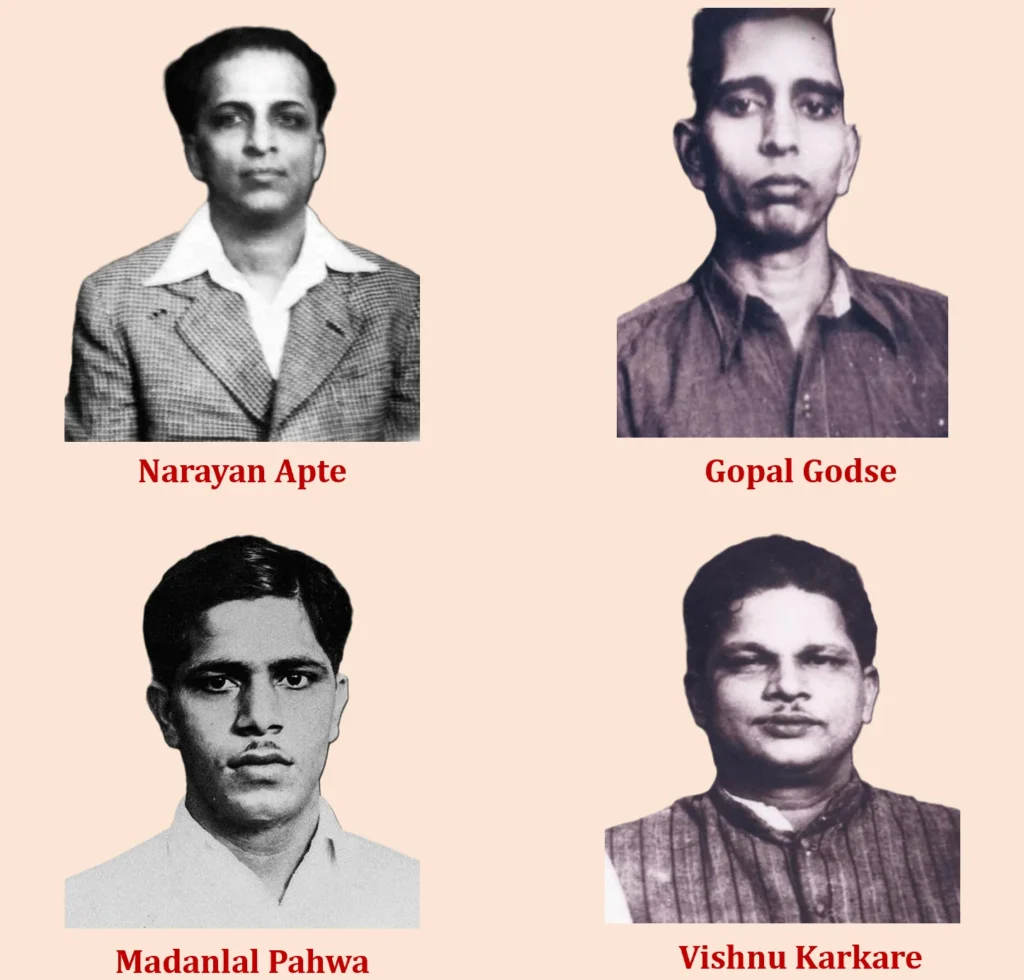
“Nathuram Godse’s cowardly act of assassinating Mahatma Gandhi will forever be etched in history as a vile act that highlights the consequences of extreme ideologies.”
The Assassination Plot: Culmination of Godse’s Hatred
Factors Contributing to Godse’s Resentment
The Opposition of Godse to Gandhi’s Political Ideologies
Nathuram Godse was a staunch opponent of Gandhi’s non-violent approach and his role in the struggle for independence. While Gandhiji preached nonviolence Godse used militant way that would force India into liberation. But it is to be noted that freedom was not their ultimate goal had it been they would have never supported British during Quit India Movement. In him, there developed an increasing sense of bitterness because he considered these principles as getting in the way of true independence.
Perceived Hindu Threats
Another important factor contributing to Godse’s anger was his belief that Gandhi prioritized Muslims over Hindus. Godse saw Gandhi’s support for the creation of Pakistan and his efforts to promote Hindu-Muslim unity as detrimental to the Hindu community. This perception heightened his hostility towards Gandhi.
Unsuccessful Efforts at Peaceful Addressing of Concerns
Godse and other like-minded individuals attempted to hold talks and engage with Gandhi in order for him to understand their concerns and disagreements. However, what they got instead were rebuttals and dismissal from the latter’s side. The steadfastness of Gandhi to refuse contrary opinions other than following his own line made Godse feel frustrated hence he also believed it was time for something radical so as to be listened to by all people today.
Planning and Execution of the Assassination
Godse’s Interactions with Co-Conspirators
Nathuram Godse meticulously planned his actions in the months leading up to the assassination, with the help of fellow conspirators. He formed an extremist group within Hindu Mahasabha and together they were responsible for plotting Gandhi’s murder. These interactions and conversations between co-conspirators revealed how deep their hatred was and how much they wanted Gandhi dead.
The Events Leading Up to the Fateful Day
Godse closely monitored Gandhi’s movements, scrutinizing his daily routine hoping that he would get a golden chance of striking at him. On January 30th, 1948, Godse got wind that Gandhi would be praying at Birla House in Delhi. This marked the highlight of his meticulous planning as it presented an ideal moment for him to execute the crime.
The Moment of Assassination and Immediate Aftermath
As the prayer gathering progressed amidst the crowds, Gandhi walked through them while Godse approached him under another pretense of seeking blessings from him. In a fraction of a second, he transformed into a traitor by firing three shots which pierced through Mahatma Gandhi’s saintly image. Immediately after this incident there was panic and sorrow all around as everyone heard about it within no time because it had spread like wildfire itself. As news of this assassination broke across India; her people went into mourning; press coverage was universal condemnation against Godse who had committed a cowardly act against nationhood.
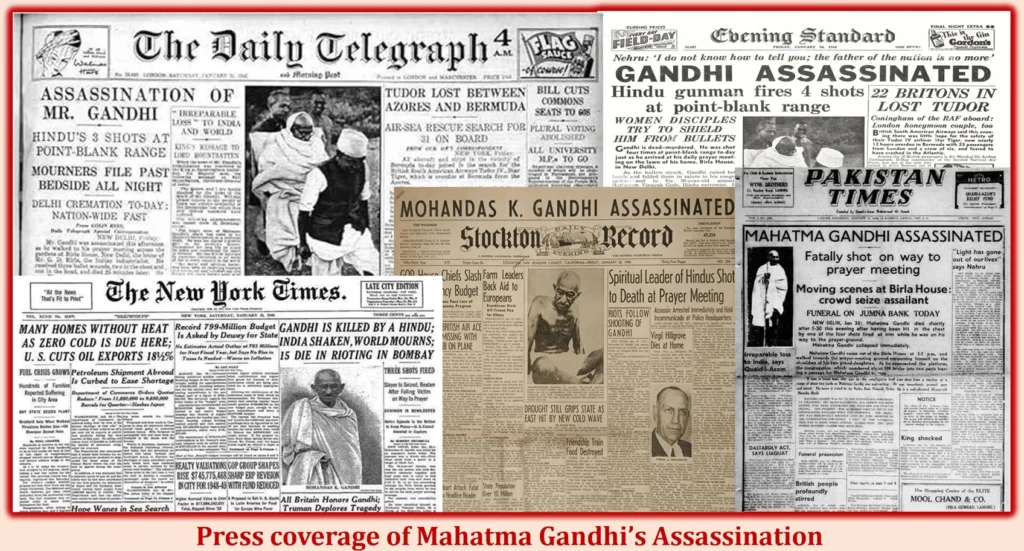
Nathuram Godse’s assassination of Mahatma Gandhi serves as a painful testament to the culmination of his hatred towards the saintly figure. The factors driving his resentment, including his opposition to Gandhi’s political ideologies, the perceived threat to Hindu interests, and unsuccessful attempts to address his concerns peacefully, set the stage for the meticulously planned assassination. Godse’s cowardly deed forever stained his name, while Gandhi continues to be seen as a symbol of peace and non-violence.
“The sad assassination of Mahatma Gandhi by Nathuram Godse not only snatched India her beloved leader but also laid bare the most terrible aspects of human evil. Godse’s act was vile which reminds that even the greatest people can harbor evil.”
Godse’s Trial and Controversial Justifications
Godse defends his actions in court
Godse’s plea and courtroom statements
Nathuram Godse, the man responsible for the horrific assassination of Mahatma Gandhi, was brought before a judge to answer for this unfathomable act. Through his plea and conduct in court, Godse revealed his twisted ideology and extent of his cowardice.
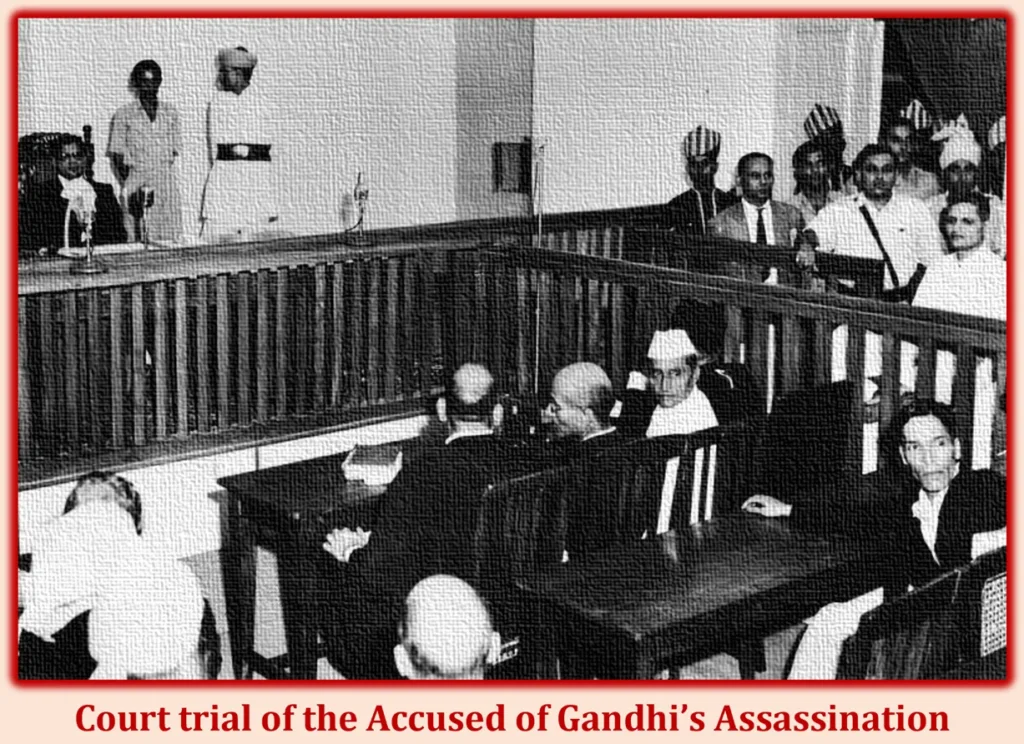
Godse used the trial as a mouthpiece for espousing his extremist beliefs. He presented himself as a nationalist who believed that killing Gandhi was for the greater good. He argued that appeasement policies by Gandhi towards Pakistan were dangerous threats to India’s security and integrity.
Despite Godse’s attempt to present his distorted reasoning, his words revealed the underlying cowardice behind his act. Rather than engaging in a constructive dialogue or peaceful resistance, Godse resorted to violence, betraying both his lack of courage and respect for the principles of non-violence that Gandhi stood for.
Why was Rs. 55 crore Transferred from India to Pakistan?
The partition of India not only delineated geographical boundaries but also divided the assets of the Reserve Bank. When the partition occurred, the Reserve Bank’s vaults held a total of Rs. 375 crores. The division of this amount was discussed by delegates from Pakistan and India over a series of talks on December 1 and 2, 1947. It was decided that Pakistan would get its portion of the monetary balance, which is Rs. 75 crores, according to its population and land area.
Pakistan, with 17.33% of the subcontinent’s population and 23.382% of its area, was entitled to 20% of the Rs. 375 crore reserve, totaling Rs. 75 crores. Of this amount, Rs. 20 crore was initially disbursed to Pakistan to address its immediate financial requirements during the nascent stages of its independence on August 14, 1947. As per the agreement reached on December 2, 1947, the remaining balance of Rs. 55 crore was earmarked to be transferred from the Indian Government to the Pakistan Government at a later date.
The Indian Government acknowledged Pakistan’s rightful claim to this sum of Rs. 55 crores. However, tensions escalated soon after partition, particularly with Pakistan’s aggressive actions in Jammu and Kashmir, along with its occupation of Gilgit and Baltistan. Despite reservations from leaders like Jawaharlal Nehru and other prominent figures in India, the decision to transfer the Rs. 55 crores to Pakistan were a recognition of its legitimate entitlement to the funds as agreed upon in the aftermath of partition. But do not forget that Mahatma Gandhi was a man of ethics and he believed in right path rather than focusing on the result and this quality of his separates him from other leaders of all times and makes him a Mahatma. Many criticize his fasting for handing over these 55 crores but according to him it was legally and ethically the money that the people of Pakistan deserved.
Let’s take an example that there is a man lying on bed and waiting for his last breath to come. He decides to divide his earning among his two sons. Now it is upon his sons that how they use their share of money. Now suppose if one of them utilizes it in such a way that his shares grow multiple times and on the other hand the other one’s share diminishes gradually. Then who’s fault is this. Can you blame that Old Man for it? If not that we can’t blame Gandhiji for his action.
The defense’s arguments and their reception
The defense team defending Godse made a number of claims to justify his behavior. They said that Hindu interests were harmed by Gandhi’s nonviolent teachings and his position on India’s division. They asserted that Godse wanted to destroy Gandhi in order to save the Hindu community from imagined enemies.
Nonetheless, a sizable portion of the populace rejected these defensive points. The defense’s attempt to justify a murder horrified people all throughout the country and further exposed the depravity of Godse’s crime. The vast majority of Indians saw that using violence against a nonviolent leader was cowardly and wrong, regardless of one’s philosophy or differences in thought.
Public reactions and political ramifications
Widespread condemnation and outrage
The country was shocked when Mahatma Gandhi was assassinated. People from all walks of life expressed their anger about that act in the strongest terms possible. Killing a respected and an elderly leader who stood for nonviolence and fought to liberate the country was seen as a betrayal of everything that India represented.
There was a lot of public outcry, with many intellectuals, high-ranking politicians and religious leaders openly denouncing Godse’s actions. The unity shown in this calamity became a strong symbol for India’s commitment to peace and refusal to use violence as a tool to achieve political or ideological ends.
The impact on extremist organizations and the freedom movement
Although Godse may have considered himself as part of something much bigger aimed at protecting Hindu interests, his deed contributed negatively towards extremist organizations and the entire freedom movement too. This assassination not only damaged these organizations’ reputation but also revealed how dangerous fanaticism can be within such groupings.
The extremist groups that once had a strong foothold faced a backlash from the public and lawmakers. Godse’s actions led to increased scrutiny and legal measures against these groups, limiting their influence and exposing their dangerous ideologies. As a result, the freedom movement continued to gain strength, but extremism lost its appeal and lost support among the masses.
Nathuram Godse’s trial and controversial justifications brought to light the depths of his cowardice and the depravity of his act. The overwhelming condemnation from the public and the impact on extremist organizations demonstrated India’s commitment to non-violence and unity. The murder of a saint by a coward reminded the Indian society that it abhors violence in pursuing its ideological or political desires.
“Regardless of the grounds, no violence can ever be justified. As a nation, we must unite against cowardly acts and strive for peace and harmony.”
Legacy and Lessons Learned
The aftermath of Godse’s act
Gandhi’s funeral and national mourning
India shed heartfelt tears upon Gandhi’s death by the hands of Godse. During his last tour, millions of people paid their final respects to the man who had come to represent India’s independence cause, causing an unprecedented outpouring of sadness. Memorial services and vigils were held around the country as people grieved for their beloved saint who had passed away.
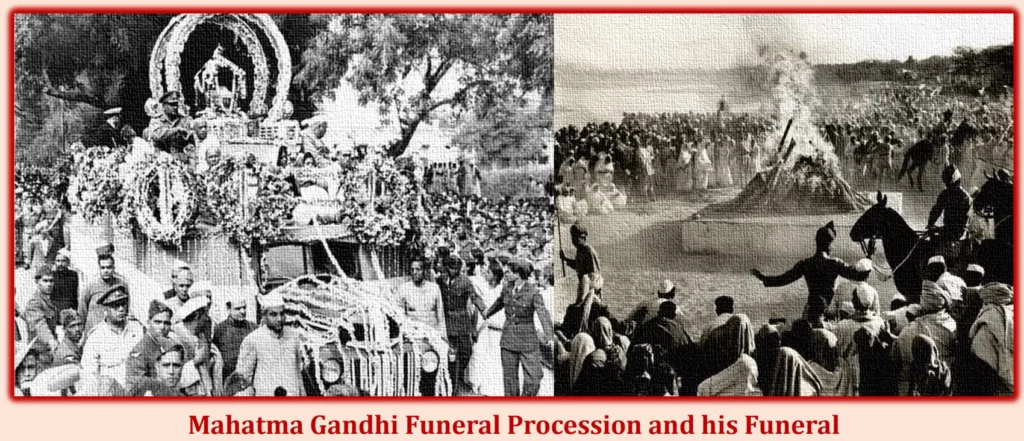
Policy changes and security measures following the assassination
Gandhi’s assassination shook the Indian government and led to significant policy changes. It became apparent that security measures needed to be strengthened to ensure the safety of prominent leaders and public figures. The Indian government implemented stricter security protocols, introducing measures such as enhanced background checks, intelligence gathering, and physical protection arrangements for public figures.
Lessons for society and future generations
Examining the consequences of hate-fueled violence
Hate-Fueled violence destructive power was shown by the assassination of Mahatma Gandhi. This shows the tragic consequences that can happen when people’s individual grievances turn to be the extreme violence acts themselves. Such happening shall make societies think about dangers of hatred and intolerance, stressing the significance of seeking peaceful and respective ways to address grudges.
The importance of dialogue and non-violent conflict resolution
Dialogue and non-violent conflict resolution have been outlined as one of the most crucial lessons from Mahatma Gandhi’s assassination. Gandhi himself believed in using dialogues constructively in solving problems through peaceful means. This sad happening should move us to start talking with each other with understanding and tolerance seeking for peace even when we disagree or clash.
Conclusion & FAQs
The killing of Mahatma Gandhi by Nathuram Godse will always be one of the saddest parts of India’s history. As we review its consequences and implications, we can create a world where people talk to each other before resorting to violence, and nobody perishes for it. It is upon us that the ideas of Mahatma Gandhi must never cease to motivate younger generations towards peaceful coexistence.
The reasons behind Godse’s intentions can only be understood by examining about his upbringing and influences and ideology. The idea of Godse being exposed, however, and the deeply ignoble nature of his act thereby revealed will show us how faithful we are to our memory of Gandhi’s lessons or teachings on life since they were about inner strength rather than outward appearances which made people more compassionate towards others inclusive world where love overpowers hate. We must remember that freedom fighters like Bhagat Singh, Subhash Chandra Bose and many others also adopted the path of aggression, but they never thought of performing such coward action because they were a patriot in true sense.
Frequently Asked Questions (FAQs)
What were the main causes of Mahatma Gandhi’s assassination by Nathuram Godse?
Political disagreements, prejudice against religion, and personal grudges against Mahatma Gandhi all contributed to Nathuram Godse’s actions. He committed this horrific deed in an effort to defend what he perceived to be the Hindu way of life because he thought Gandhi’s nonviolent and inclusive values were harmful to Hindu interests.
How did the trial of Godse unfold? What were some arguments made on his behalf?
Nathuram Godse’s case attracted a lot of attention from the media and became a platform for ideological discussions. But Godse justified himself by saying that Gandhi was endangering Hindu community and India as a country through his policies. However, he was found guilty after the court deemed this defense unacceptable.
What is the immediate and long-term impact of Gandhi’s assassination on Indian society and politics?
Gandhi’s killing had both immediate and long-term repercussions in India’s society and politics. Nonetheless, there was widespread mourning in the short run while also posing fear of public figures’ security being threatened. Politically, its effect on the Indian National Congress was significant because it created a gap in leadership left by Gandhi which resulted into internal wrangles among members within organization. Ultimately, it stood as a warning against religious extremism and political fanaticism in India.
